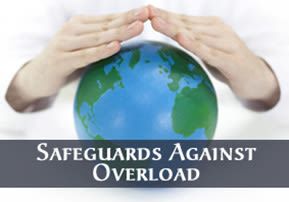
Safeguards Against Overload
Rebbe Nachman teaches us to serve Hashem gradually, within bounds; then he says in the same Torah 49, grab what you can as fast as you can. What’s going on?

If we had truly spiritual eyes, we would see that the holiness of Uman is virtually blinding, like looking directly into the sun. We all understand that sun-gazing is certainly dangerous without proper protective dark glasses; the same goes for exposing one’s skin to direct summertime low-altitude sunlight without using a protective sun-screening cream. Both are examples of more solar light than the body can handle. Such unlimited exposure could result in blindness or severe burns, Heaven forbid.
Uman is the site of the greatest sanctification of Hashem’s name in history, where the sadistic Cossacks under Ivan Gonta barbarously slaughtered 33,000 Jews. Not a single one of those Jews were willing to bow down to a cross to save their own lives. Rebbe Nachman – born a mere four years after that infamous Uman pogrom of 1768 – wanted to be buried there because it’s such sacred ground.
Rebbe Nachman promised that his fire will burn ever so brightly until the coming of Mashiach. That’s why his light is so bright. So between Rebbe Nachman and the sanctity of Uman, a person enters a hall of very strong illumination.
Both Kabbala and physics teach that one must have a suitable receptacle to harness, contain, and utilize energy. The physical and the metaphysical worlds operate according to similar principles. One easily understands that a 40-Watt build will burst if it receives 500 Watts of direct current. We are therefore not doing that light bulb a favor by attempting to illuminate it with twelve times the current that it can stand. We therefore must do one of two things – either get a stronger light bulb with a greater capacity, or somehow limit the amount of current that reaches the light bulb, or both.
In Likutei Moharan I, Torah 49, we see an apparent contradiction: the Rebbe says,
“By limiting one’s enthusiasm, one learns how to do things in proper measure, in other words, to serve Hashem gradually and within bounds.”
By “within bounds,” the Rebbe is teaching that if we are 75-Watt bulbs, then we shouldn’t zap ourselves with 150 Watts of power until we either strengthen our receptacle or limit the incoming light, otherwise we’ll shatter ourselves, Heaven forbid. We’ll soon explain what this means in practical terms.
Yet, at the end of Torah 49, the Rebbe says, Ir darft zich zeir yoggin, ir zolt noch kennin eppis chappen! In other words, the Rebbe is telling us to be really agile (in our avodat Hashem), so we can still grab more and more. The Rebbe says that this is an especially important principle for a Baal Teshuva, to compensate for the years that he spent without serving Hashem.
So what do we do, serve Hashem gradually and within the bounds of our current spiritual level or fly as fast as we can, grabbing more and more?
Hashem illuminated my heart with the following explanation that resolves the above-mentioned apparent contradiction in Torah 49: We must climb the successive rungs from one spiritual level to the next higher one safely and gradually, to prevent the type of ribui or and spiritual burnout that blinds and topples so many would-be servants of Hashem, especially new Baalei Teshuva. On the other hand, within the boundaries of our current spiritual level, we have to do all the learning, praying, and mitzvah fulfillment as we can, for there’s no time like the present. My beloved rabbi and teacher Rav Shalom Arush, may Hashem bless him always, affirmed that the above explanation is correct.
Rav Shalom Arush emphasizes that hit’orrerut – spiritual arousal – is dangerous unless it’s coupled with hitchazkut, or spiritual reinforcement. True hit’orrerut therefore must be accompanied by tzimtzum, limitations, just as raw electricity must go through a relay station, transformer, and circuit breaker before it is allowed to reach our light bulb or toaster. For every watt of hit’orrerut – the added spiritual light of arousal – we must have the equivalent hitchazkut, or spiritual strengthening of the vessel that has the capability of holding that light. To paraphrase Rebbe Natan, who was even more careful, for every ounce of hit’orrerut, we need a pound of hitchazkut.
How do we know when we are properly limiting the spiritual “current”, or light that is flowing our way? Simple – when we’re happy with what we have. That doesn’t mean that we don’t yearn, strive and pray for more – we do! But we should be happy with what we’re doing right now, just as it is. This is the secret of what Rabbenu told us in his declaration that behooves all of us to attend the annual Rosh Hashanah kibbutz in Uman: Ya shloffin, nisht shloffin; ya essen, nisht essen; ya davenin, nisht davenin… Whether or not we succeed to eat, sleep, or even pray in Uman – the Rebbe nonetheless wants to see us in the kibbutz of his chassidim on Rosh Hashanah.
You might think this is totally weird: What, the Rebbe doesn’t care if we pray or not on Rosh Hashanah?
No, that’s not what the Rebbe meant.
The Rebbe knows full well that when we come to Uman, we get supercharged with high-voltage desire to serve Hashem. The problem is that some people get super high exposure, fly up on a cloud way beyond their spiritual level, then crash land and lose everything. How so?
When we leave the Rebbe’s grave site on Rosh Hashanah eve and now move over to the Kloiz, we expect that we should now be plucking angels out of the sky with the power of our prayers. Those high expectations are ribui or – too much light – and dangerous. Many Uman-goers become spiritual casualties when they don’t feel a holy spirit of perfect kavanna (intention) permeating their prayers. Then what happens? They crash land and fall into deep despair, right then and there during Rosh Hashanah in Uman. They walk around with either a bewildered or depressed look on their faces, regretting that they ever came to the Ukraine for Rosh Hashanah. That’s exactly what the Yetzer Hara wants.
Some people have the crash even before Rosh Hashanah, when they go to the tziyyun, and the Rebbe doesn’t reveal himself to them. This is a combination of fantasy, arrogance, and yes – too much light.
So what if “all the other guys” say that the Rebbe revealed himself to them? Remember the cobbler with the three-pointed shoe? That’s their deal, and this is my deal! I should rejoice that I have the privilege of being with the Rebbe and the kibbutz on Rosh Hashanah! I should grab every moment of prayer, learning, and hitchazkut. I should take advantage of the round-the-clock shiurim, and grab whatever I can! But, all this should be within my own spiritual level; without becoming a spiritual casualty by being burned with more light than I can handle.
The main sign of spiritual burnout is depression while the sign of proper avoda is sameach b’chelko – happy with what we have.
Let’s enjoy Uman’s bright light. Let’s do our best to strengthen ourselves, but in the meanwhile, let’s be mighty happy with what we have. A ktiva v’chatima tova for us and for all of Israel, amen.



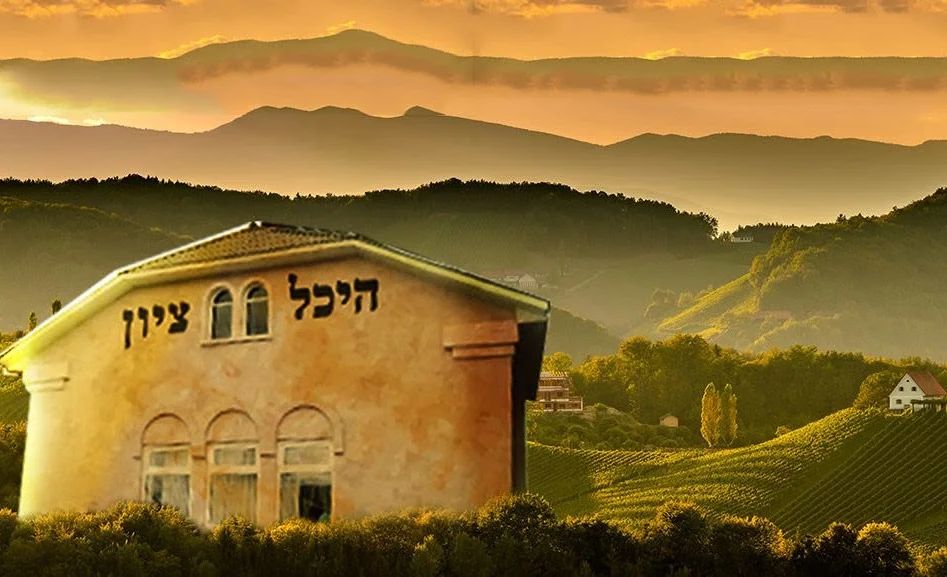
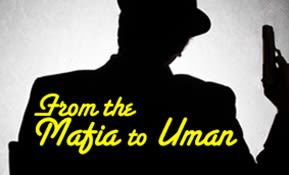
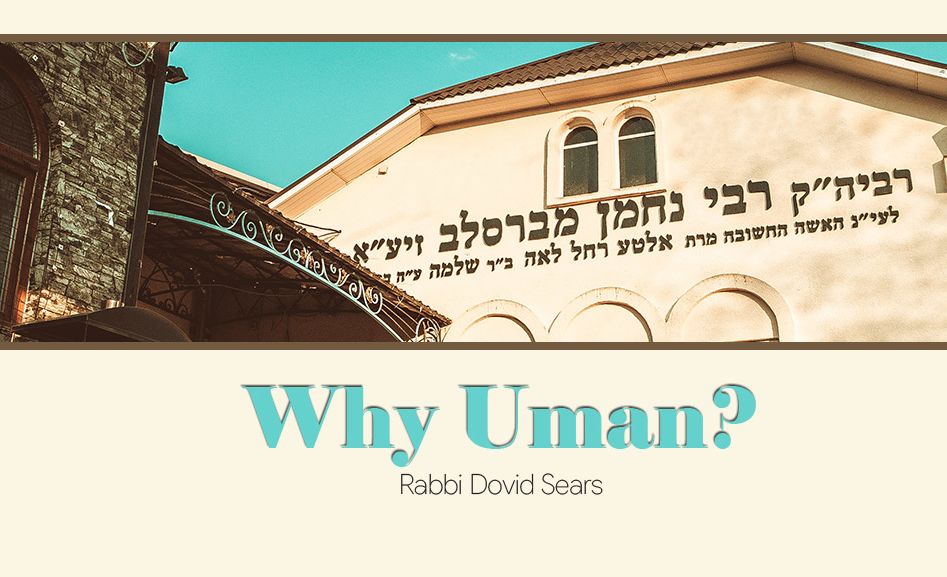



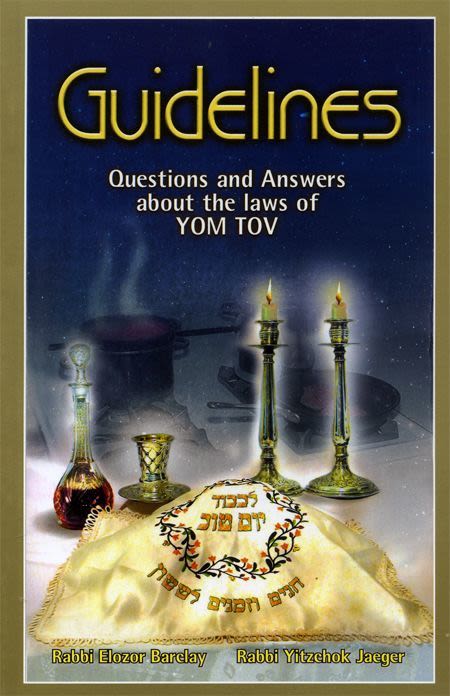

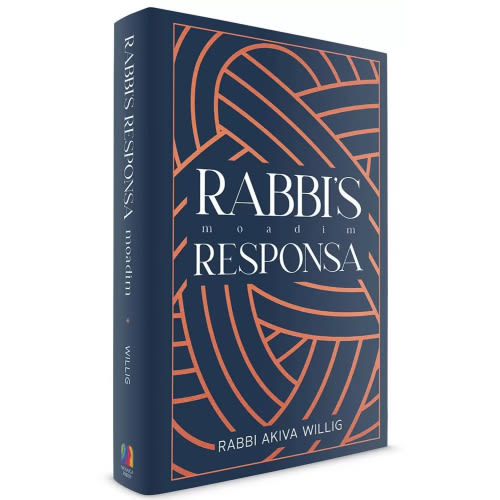
Tell us what you think!
Thank you for your comment!
It will be published after approval by the Editor.